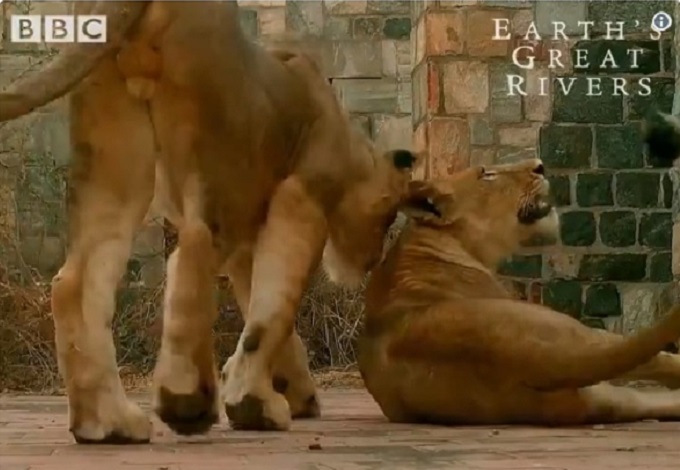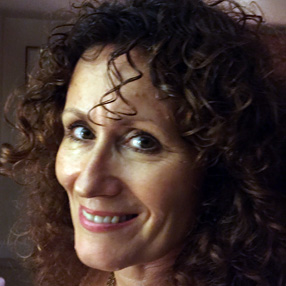
Who moved in after Amin moved out?
The BBC’s latest big budget wildlife affair is with the Earth’s Great Rivers, specifically the Amazon, the Mississippi and my personal favourite, the Nile.
Last week the muzungu was very happy to find the BBC’s Nile series was literally in full flow. As a shot of the world’s longest river came into view, I recognised the outline of the derelict buildings of Pakuba Lodge in Murchison Falls National Park.
The team made quite a few surprising discoveries thanks to some undercover filming!
From a dictator’s home to a wildlife haven#EarthsGreatRivers pic.twitter.com/IQkYCK0U90
— BBC Earth (@BBCEarth) January 2, 2019
Here’s why you should watch the whole programme (on IPlayer if you’re in the UK):
“For a river that conjures up images of pyramids and pharaohs, the Nile turns out to be a truly surprising river that changes at every twist and turn of its journey. As it flows into increasingly arid latitudes on its journey north it becomes an evermore vital lifeline for animals and people, but only if they can conquer the challenges that this ever-changing river throws at them. The Nile’s story begins in a spectacular, tropical mountain range – the Rwenzoris. Streams plunge from these snowy peaks creating wetlands on the plains below. Here they create a mobile water garden of papyrus reeds, home to one of the world’s strangest birds – a shoebill stork. Though beautiful, clumps of reeds break up and float around creating a challenging environment for would-be fishermen. A stork’s best way of finding prey is to form a rather strange alliance – wily shoebills follow hippos whose great bulk opens up fishing channels for them.

Shoebill, River Nile Delta, Murchison Falls. Wild Frontiers. Photo Allan Ssenyonga
The Nile’s headwaters create huge lakes in the equatorial heart of Africa – everything here is on a vast scale, especially Lake Victoria which is the size of Ireland. Here vast swarms of lakeflies sweep across its waters on a biblical scale, providing an unexpected feast for local people who trap the insects to make ‘fly burgers’. It is not just Lake Victoria’s immense size which makes it so dramatic. The vast lake has only a single exit channel of ferocious white water – the aptly named White Nile. People come from around the globe to tackle the rapids here which are some of the most powerful and infamous in the world. A local heroine, Amina Tayona (a mum from a nearby village) is brave enough to ride them. Amina has learnt to kayak on these treacherous rapids – and now competes against international athletes.
The next stage of the Nile’s great journey are the wild Savannah lands of Uganda and the awesome spectacle of one the world’s most powerful waterfalls, Murchison Falls. Here, valiant crocodile mothers try to defend their nest against hungry predators. Even though they are such fearsome predators – crocodiles have a weakness which other animals exploit. Watch as cunning Nile monitor lizards try to outwit an increasingly desperate Nile crocodile mother who faces a terrible dilemma. Further downstream is the setting for one of the episode’s most surprising stories. Filmed for the first time using the latest camera-trap technology, cameras reveal strange goings-on at the abandoned country home of infamous and exiled dictator, Idi Amin. Its ruins – in Pakuba in northern Murchison Falls National Park] – are attracting new, wild guests. Many of Africa’s big predators make their home here today.

It would seem the River Nile was higher in 2010 when my dad inspected the Devil’s Cauldron. Top of Murchison Falls
In South Sudan, the Nile river slows and spreads out transforming into a huge wetland – the Sudd (Arabic for barrier). Half of its water is lost due to evaporation here and this is before the river embarks on its epic crossing of the Sahara – a desert the size of China. Every year, the dwindling Nile receives a massive, timely injection of water far to the east. In the Ethiopian highlands, the Nile’s greatest tributary – the Blue Nile – is swelled by the wet season creating some of the most turbulent and dramatic seasonal waterfalls on Earth and forming a spectacular gorge which is nearly as deep as the Grand Canyon.

A warthog family was caught on camera by the BBC in the ruins of an old building
The Blue Nile is a river revered and used in a variety of incredible ways – from mass baptism ceremonies in the ancient Ethiopian city of Gondar to colonies of cheeky weaver birds who use the riverbank’s reeds to build intricate nests. The Blue Nile replenishes the main Nile channel at the Sudanese capital city of Khartoum, the two become one and embark on the epic crossing of the Sahara. The miracle of the Nile is that it has allowed great civilisations to thrive in a desolate and arid region – today and throughout history. From the exotic city of Cairo, to the glories of ancient Egypt, breathtaking photography reveals the extent of the Nile’s power to transport water from one part of world and deliver it to another, building and supporting life.”

ruins of original Pakuba Lodge Murchison Falls Uganda
The last time I visited Pakuba was in 2013 when approximately 70 of us stayed at the (new) Pakuba Lodge. We were in the area to view Uganda’s solar eclipse, a mind-blowing experience that I will treasure forever. I remember Simon Peter, the charming Uganda Wildlife Authority ranger, visiting each tent to reassure us that he would “protect us from leopards and scorpions!” I had heard a rumour of the leopard living in the ruins of the original Pakuba Lodge (but it was the first time I’d heard talk of scorpions in Uganda).

If you ever get the chance to see a solar eclipse JUST GO! This photo was taken from Pokwero near Pakwach in 2013
“Brutal dictator’s home is now a wildlife haven” says the BBC. Although Pakuba Lodge was not President Idi Amin’s home, it was said to have been his favourite hideaway. Pakuba Lodge was one of the original Uganda Hotels chain. (The first Uganda Hotel was built in 1923 and still stands in Masindi). In the 1970’s Idi Amin turned Pakuba into a ‘State Lodge’, for his personal enjoyment. Note to self: isn’t it interesting how a president from a bygone era continues to be the only thing many people associate with Uganda? Idi Amin was overthrown in 1979, a staggering four decades ago.
Murchison Falls is one of Uganda’s prime safari destinations and I LOVE how wildlife populations are recovering – in this case taking back the derelict buildings of Pakuba Lodge. To read more about the River Nile at Murchison and its fantastic birdlife, read “Stirring up magic at the Devil’s Cauldron.”


























wow my beautiful Uganda!All I can say is thank you God for such a pretty place that I can always go back to and enjoy to the fullest And with the now dual citizenship it’s even become much more earlier for us the lost Ugandan.
Yes Uganda is SUCH a beautiful country (and how many Ugandans know it?) Lucky you, having dual citizenship! 🙂
Wow! I can’t really wait to visit Uganda’s wonders in person. I like that photo taken from a warthog’s butt. Hahaha. I think that man in the photo is David Attenborough. Whenever I hear or see BBC, his voice keeps on playing in my head. Lol.
David Attenborough is one of my heroes. That voice is something else. You know when you hear it that he has total respect for the natural world and that you will see and learn something amazing! The BBC show was superb and really worth watching if you can.
Incredible to see the night time images of wildlife in the derelict building.